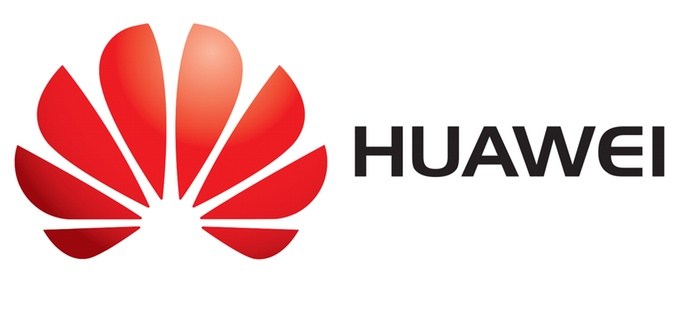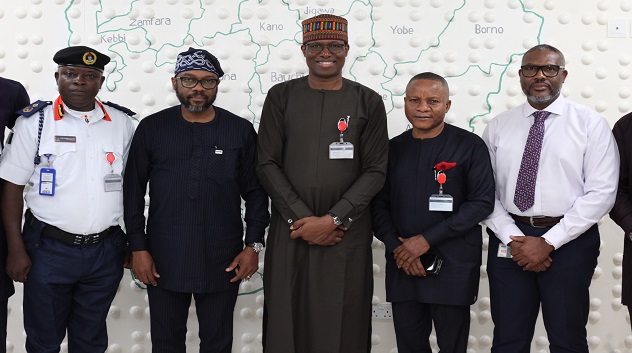Telecom
How 5G Technology Will Drive Future Business – Huawei, Partners

Huawei Technologies, leading global provider of information and communications technology (ICT) infrastructure and smart devices, recently held its 5G+, Better World Summit, where various operators and industry partners shared their experiences of how 5G applications can drive significant business and industry efficiency.

Several Huawei partners during the summit highlighted the different industries that are getting great benefits out of 5G. Even as they say 5G’s Impact on Global GDP is over $7.5 trillion.
Bob Cai, Huawei Carrier CMO in his address said; “5G development has entered a new phase.”
“With over 80 5G networks commercially available worldwide, determining how to leverage 5G to create more value is currently a topic of great interest within the industry.”
“Currently, 5G for business is still more of a branding concept, and more solid work needs to be done. To build a positive business cycle, work should be done in four aspects: technology, ecosystem, standards, and business model.”
5G will drive future business
Dimitris Mavrakis, research director of ABI research, highlighted that new ‘G’ technologies have historically offered major benefits to consumers.
5G, however, is likely to be most beneficial to the commercial sector.
By 2030, Mavrakis predicted that 5G’s impact on the global GDP will be over $7.5 trillion – compared to the $5.1 trillion 4G contributed in 2019.
“We expect that 5G will transform businesses in the same way 4G transformed consumers,” said Mavrakis.
However, he cautioned that it could take several years for the manufacturing world to adopt the technology.
Mavrakis also implored governments to provide opportunities for 5G to flourish within their countries, and highlighted ways that this is already being done, such as in the provisioning of free 5G spectrum and the reduction in taxation of carriers.
Several Huawei partners also highlighted the different industries that are already getting great benefits out of 5G.
Ports of trade
Xu Mengqiang, General Manager of China Mobile Ningbo, highlighted that several 5G implementations have resulted in substantial benefits to a Ningbo port.
These include 5G-powered self-driving container trucks, remote controlled cranes, and backhaul HD video streaming – which shows key cranes in real time.
The Ningbo port envisions that efficiency will be increased by over 260% while labour costs will be cut by over 70% as a result of new 5G-powered technologies.
Agriculture
Dr Thomas Anken is the head of the Digital Production Federal Department of Economic Affairs Education and Research in Switzerland.
Anken highlighted that 5G is enabling a variety of smart farming methods that have a significant impact on the yields of farms in the country.
Examples include:
Multispectral imaging of wheat fields by drones resulting in a 10% decrease in fertiliser usage.
Tractors with an automated hoe that recognises plants and eliminates the weeds around them.
The swift delivery of important intelligence to the cloud which ensures that automated robots receive data to update their machine learning capabilities, while farmers also receive insights into how they can optimise their processes.
Smart factories
Guo Lihong, Deputy Director of the Engineering Equipment Department of Hunan Valin Xiangtan Iron and Steel, explained that 5G is expected to increase the factory’s efficiency by 30% while reducing costs by the same margin.
5G is used with remote-controlled cranes and slag-adding arms to streamline the factory’s processes, and these cranes have improved production efficiency by 33%.
The ability for production line surveyors to watch real-time production through HD video has also optimised these workers’ jobs.
In total, the factory plans to build 100 5G macro sites as well as three management centres to continue to reap the benefits of 5G.
Hospitals
Hospitals in the Henan province have implemented a variety of impressive 5G-powered functionalities to improve their response to the COVID-19 pandemic. These systems were installed within 82 hours and involved the building of remote systems for 147 hospitals in 18 cities within the province.
Features that were available to these hospitals included:
Remote surgery guidance.
Robots through which doctors can talk to patients.
Systems in ambulances which support first response teams – in an ambulance moving at 80km/h, backhaul speed is 50MB/s.
Telecom
IHS Nigeria Hosts Telecom Industry Stakeholders to Discuss Protection of Critical National Infrastructure in Lagos State

IHS Nigeria, part of the IHS Holding Limited (NYSE: IHS) (“IHS Towers”) group, one of the largest independent owners, operators, and developers of shared communications infrastructure in the world by tower count, recently hosted a high-level meeting of stakeholders in the telecommunications industry including regulators and law enforcement agencies, at its corporate headquarters in Lagos.

The meeting was organized to develop a multi-stakeholder action plan for the protection of Critical National Information Infrastructure (CNII) assets in Lagos state.
Recognizing the importance of communications infrastructure as the backbone of national security, economic growth and social cohesion, the stakeholders at the meeting convened under the umbrella of the Association of Licensed Telecoms Operators of Nigeria (ALTON) agreed on the urgent need for collaborative solutions to ensure the protection of these vital assets.
The meeting was attended by senior representatives from the telecommunications stakeholder groups and regulatory bodies including the Nigerian Communications Commission (NCC), the Association of Licensed Telecoms Operators of Nigeria (ALTON), Association of Telecommunications Companies of Nigeria (ATCON) and the Lagos State Infrastructure Maintenance and Regulatory Agency (LASIMRA).
Also in attendance were representatives from the Mobile Network Operators (MNOs), and InfraCos as well as the Nigeria Security and Civil Defence Corps (NSCDC), the security agency tasked with the protection of Critical National Infrastructure across the country.
Following extensive deliberations, the stakeholders resolved to establish a working group dedicated to addressing key industry challenges, including the vandalization and theft of telecommunications infrastructure, arbitrary shutdown of base stations, fiber cuts due to road construction and the denial of access by unauthorized individuals by leveraging technology for real-time monitoring and protection, strengthening security measures around telecommunication sites and collaborating more with the security and regulatory agencies to mitigate these challenges.
The stakeholders underscored the need to prioritize deterrence and prevention of these incidents and highlighted the importance of public awareness campaigns to sensitize the host communities and public of the need to protect telecommunications infrastructure in their localities.
Dapo Otunla, Senior Vice President & Chief Corporate Services Officer of IHS Nigeria, commented, “The protection of Critical National Information Infrastructure (CNII) has been a critical concern for all industry stakeholders.
“We are experiencing daily losses of assets, which significantly impact on the quality of service delivered to subscribers. Addressing these issues is paramount to sustaining Nigeria’s digital ecosystem and meeting regulatory expectations.”
Telecom
MTN Champs Continental Relays: Over 1,000 Athletes Gear Up for Lagos Showcase

Over 1ooo athletes are already set to participate in the upcoming MTN Champs Continental Relays, taking place between April 9 and April 12 at the UNILAG and Yabatech Sports complexes. Organisers anticipate even more registrations before the April 2 deadline.

MTN Champs is Nigeria’s largest grassroots sports competition, a collaboration between MTN Nigeria and Making of Champs (MoC), providing a platform for young athletes to showcase their talents and potentially represent Nigeria on the global stage.
Osaze Ebueku, Senior Manager, Go-to-Market at MTN Nigeria at the opening ceremony of the MTN Champs Classics events in Benin had emphasised the long-term vision behind MTN Champs: “We’re building future Olympians for Nigeria. MTN Champs is about more than competition. It’s about changing lives.”
The continental relays mark the second leg of the MTN Champs Season 3, following the Classics competition in Benin, which saw 4,371 event entries from 2,056 athletes.
As of March 24, the Lagos leg had already recorded 2,821 event entries across different age categories, highlighting the growing enthusiasm around the competition.
The registered athletes are spread across four categories, with 174 in the Cadet (U-14) category, 388 in Youth (U-17), 270 in Junior (U-20), and 279 in the Senior category.
To ensure smooth participation, organisers have outlined important guidelines. Athletes in the Cadet, Youth, and Junior categories must submit a signed Parental Consent Form, while all registered schools and athletes must collect their competition bibs by April 8 at the competition venue to confirm their participation and secure their place on the start list.
Sports enthusiasts can look forward to an electrifying showcase of emerging talent, as young athletes seize the opportunity to prove their skills on a professional stage.
Telecom
Again, Labour Fumes, Threatens Shutdown of Telcos over Non-Implementation of 15 Percent Tariff Reduction

Nigeria Labour Congress (NLC) is threatening to shut down operations of telecommunications companies over their refusal to comment on the 15 percent reduction in telecom tariffs.

Recall that that organised labour, through the NLC, forced the federal government and NCC to reduce the telecommunications tariff hike from 50% to 35% after threatening to shut down telecom operations and the NCC in response to what it saw as exploitative economic policies amidst excruciating suffering, hardship, and deepening poverty.
The government had previously formed a 10-member committee, consisting of five government and NLC representatives, to deliberate on the thorny topic of tariff hikes within two weeks and report back before making a final decision on the new telecom tariff structure.
Consequently, on Friday, February 21, 2025, the committee, at a meeting conducted in the office of the National Security Adviser (NSA) that lasted nearly three hours, decided on a 15 per cent tariff cut.
According to reports, in accordance with the conditions of the agreement, an official communiqué announcing the tariff reduction was scheduled to be released on Saturday, February 22.
According to Chronicle,iIt was said that the meeting began at 4:00 p.m. and concluded around 7:00 p.m., during which NLC representatives insisted that the tariff hike be withdrawn.
According to sources, after significant pressure from NLC representatives in the 10-man committee, the government and NCC gave up and agreed on the 15% decrease, which the government or NCC should have announced the next day.
However, at the time of this report, no such announcement has been made.
Leaders of the labour union are not taking the government’s failure to announce or implement the 15% tariff decrease lightly, suspecting that they have been duped.
The Labour leaders have therefore resolved to directly confront the NCC and telecommunications operators next week.
Though it has been reported that the date for the start of the industrial action against the NCC and telecom providers has been set and mobilisation is underway, the information is being closely guarded.
One of the leaders of the NLC stated that “We have received directives to commence mobilisation since last week. In fact, the date for the commencement of industrial action against the NCC and telecommunication operators’ offices across the country has been fixed. We have been warned not to disclose the date because the plan is to take all concerned by surprise. We are not giving any notice because we thought we had resolved this matter over a month ago. It is as if we have been scammed. Therefore, we have decided to confront the matter head-on.”
On February 12, the NLC expressed outrage over telecommunications companies’ tariff hikes, despite an earlier agreement with the Federal Government and the NCC.
According to the Labour union, “If the telecommunications companies fail to revert to the old tariff by the end of February 2025, a total shutdown of their operations nationwide will commence on March 1, 2025.”
To demonstrate its seriousness, the NLC declared that, as a first step in resisting the arbitrary tariff hike, it directed that workers and other willing citizens boycott the services of MTN, AIRTEL, and GLO daily between 11:00 a.m. and 2:00 p.m. until the end.
On Tuesday, February 11, NLC leaders issued a communiqué at the conclusion of their Central Working Committee (CWC) meeting in Lokoja, Kogi State, urging workers and citizens to suspend data purchases from telecommunications companies, which have also become one of their most effective tools for exploiting Nigerian citizens.
The communiqué, signed by Joe Ajaero and Emma Ugboaja, Congress’ President and General Secretary, respectively, instructed NLC State Councils and industrial union affiliates to quickly sensitise and mobilise their members and the general public in their jurisdictions.

 Telecom2 days ago
Telecom2 days agoAgain, Labour Fumes, Threatens Shutdown of Telcos over Non-Implementation of 15 Percent Tariff Reduction

 News2 days ago
News2 days agoNNPC Ready to Go to Capital Market for IPO- CFIO

 E-Business2 days ago
E-Business2 days agoFG Launches Online Visa Approval Centre

 E-Business2 days ago
E-Business2 days agoQNET Disassociates From Fraudulent Academy in Abuja, Supports EFCC Arrest

 E-Business2 days ago
E-Business2 days agoFirm Discovers Sophisticated Chrome Zero-day Exploit Used in Active Attacks

 E-Financial2 days ago
E-Financial2 days agoFintech, Remittances Anchor Africa’s Booming Payments System

 E-Business2 days ago
E-Business2 days agoNITDA Partners JICA to Launch Nigeria-Japan Startup Hub

 Telecom2 days ago
Telecom2 days agoEverything You Need to Know About MTN’s MIP 2025 Fellowship Webinar



























